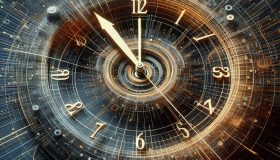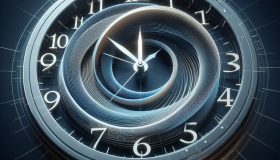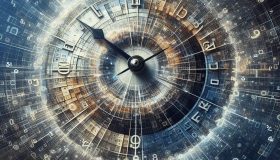
In our modern world, timekeeping is ubiquitous and seemingly precise, with atomic clocks measuring time to the nanosecond. However, beneath the façade of precision lies an undeniable truth: there’s no such thing as a 100% accurate clock. Let’s delve into the complexities of timekeeping and understand why absolute accuracy remains elusive.
At the heart of timekeeping is the concept of measurement, which inherently involves some degree of uncertainty. Even the most sophisticated timekeeping devices are subject to external factors that can introduce errors. One such factor is the environment in which the clock operates.
Temperature fluctuations, electromagnetic interference, and gravitational variations can all affect the performance of a clock. These environmental influences can cause minute changes in the clock’s mechanisms, leading to deviations from true time. While these errors may be imperceptible in daily life, they accumulate over time, resulting in discrepancies between the clock’s reading and the true passage of time.
Furthermore, the very nature of time itself poses challenges to achieving perfect accuracy. Time is a relative concept, as demonstrated by Einstein’s theory of relativity. According to this theory, time is not uniform but can be distorted by factors such as gravity and velocity. As a result, two clocks can measure time differently depending on their relative motion and position in a gravitational field.
In the realm of atomic clocks, which are considered the most accurate timekeeping devices, even minuscule variations in the behavior of atoms can introduce errors. Factors such as atomic vibrations, magnetic fields, and quantum fluctuations can all affect the stability of atomic clocks, limiting their ultimate precision.
Despite these challenges, scientists continually strive to improve the accuracy of timekeeping technology. Advances in quantum mechanics, precision engineering, and data analysis techniques have enabled the development of increasingly accurate clocks. However, achieving perfect accuracy remains an elusive goal.
In conclusion, while our modern world may boast impressive timekeeping technology, the quest for a 100% accurate clock continues. As we gain a deeper understanding of the fundamental principles of time and refine our measurement techniques, we inch closer to the ideal of perfect timekeeping. Yet, the inherent complexities of time and the universe ensure that absolute accuracy will always remain just out of reach.
Meta Description: Delve into the world of timekeeping and discover why achieving perfect accuracy remains an elusive goal. Explore the environmental factors, scientific principles, and technological challenges that prevent the existence of a 100% accurate clock.








